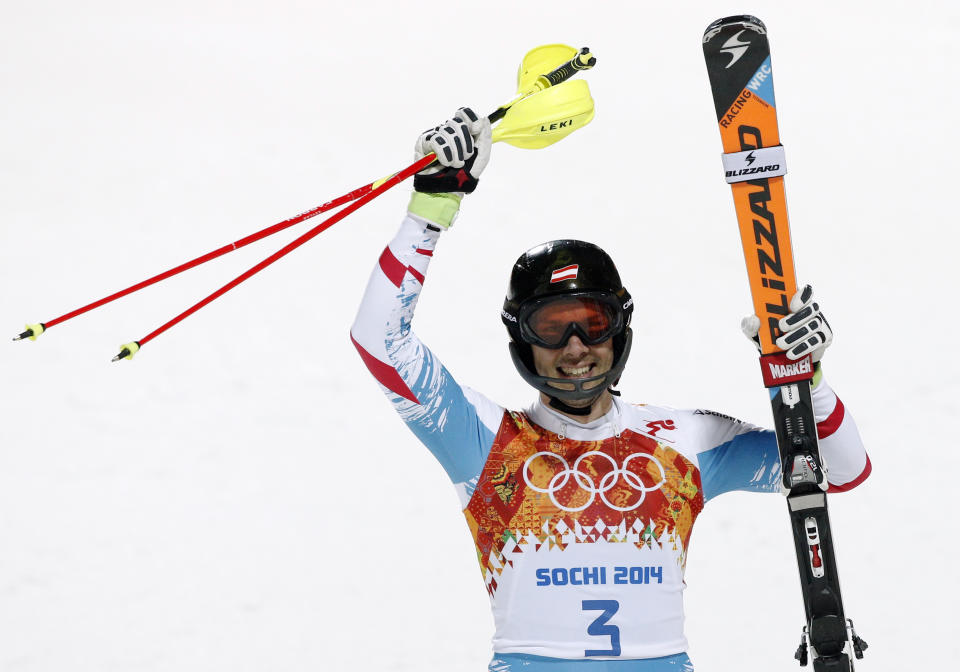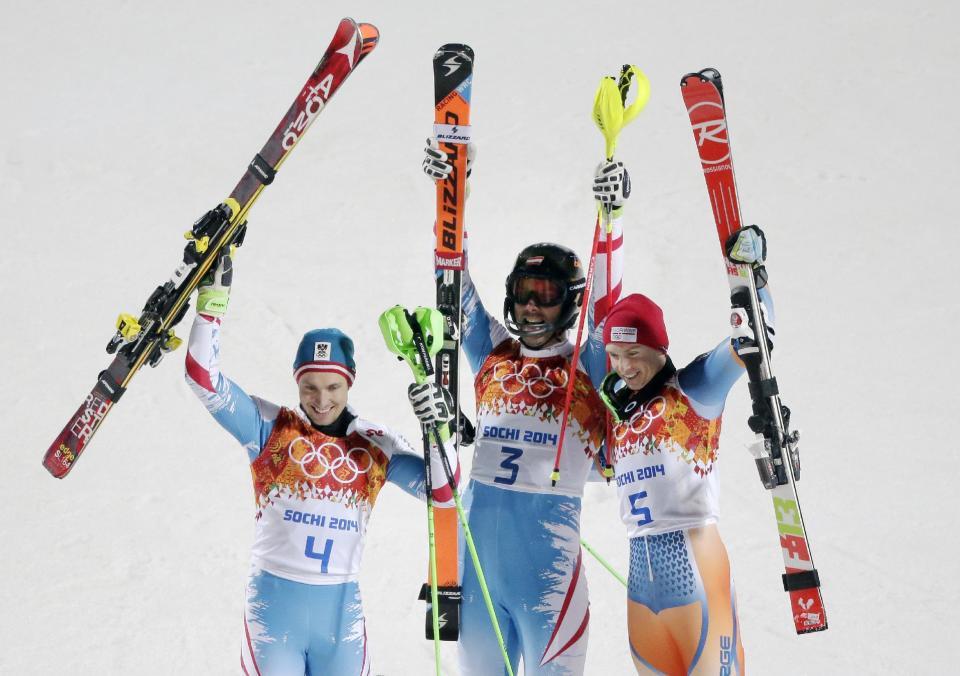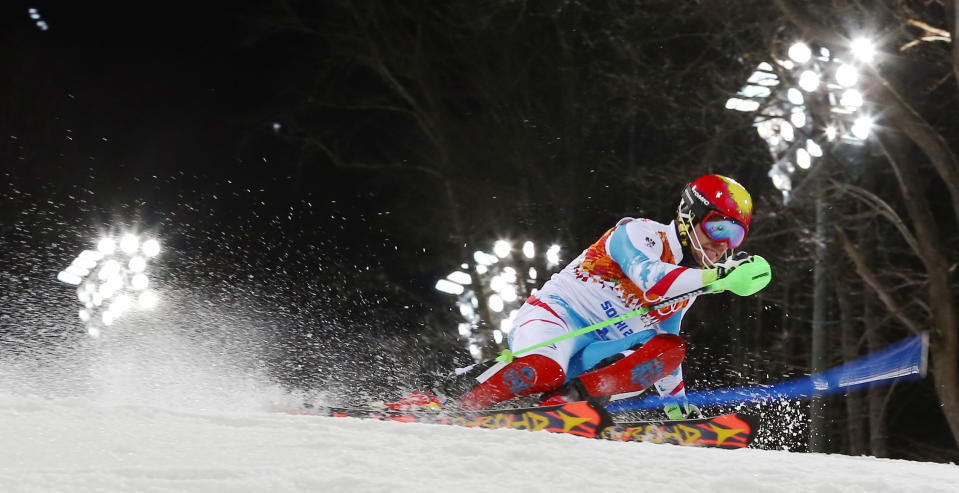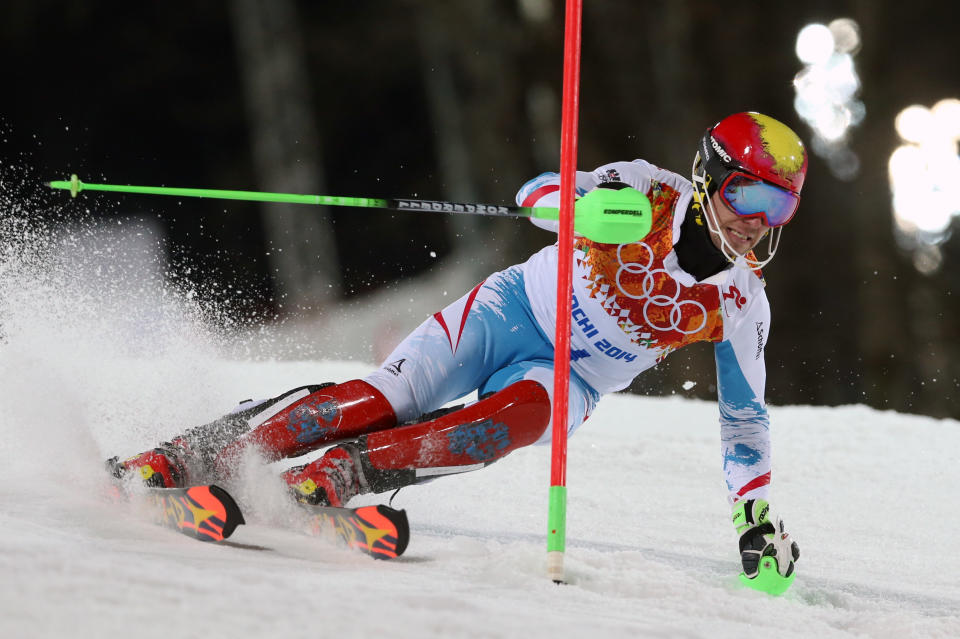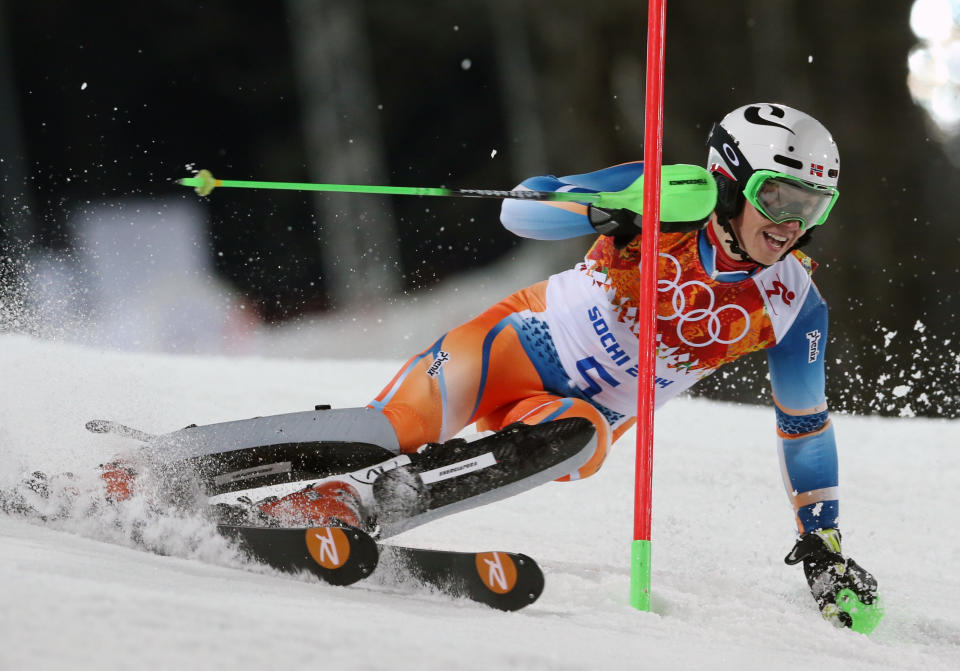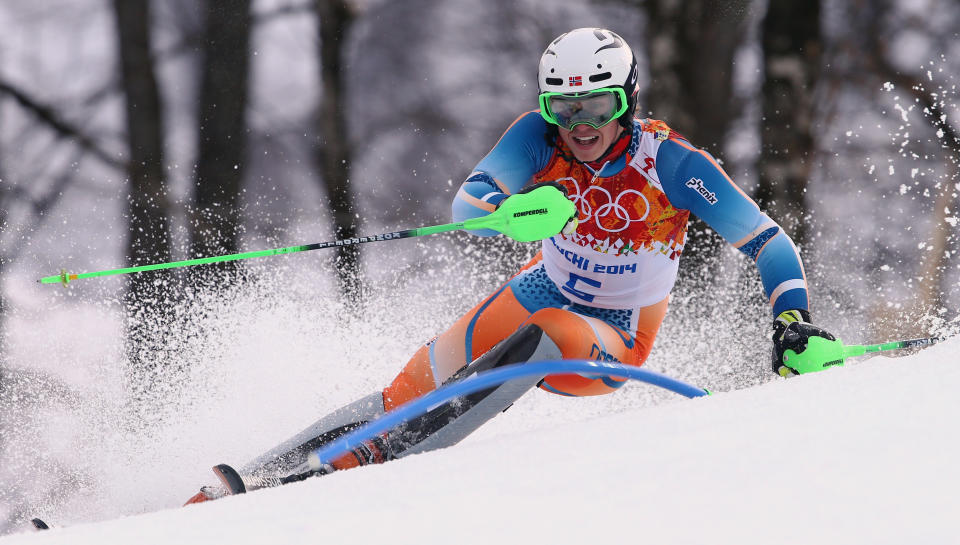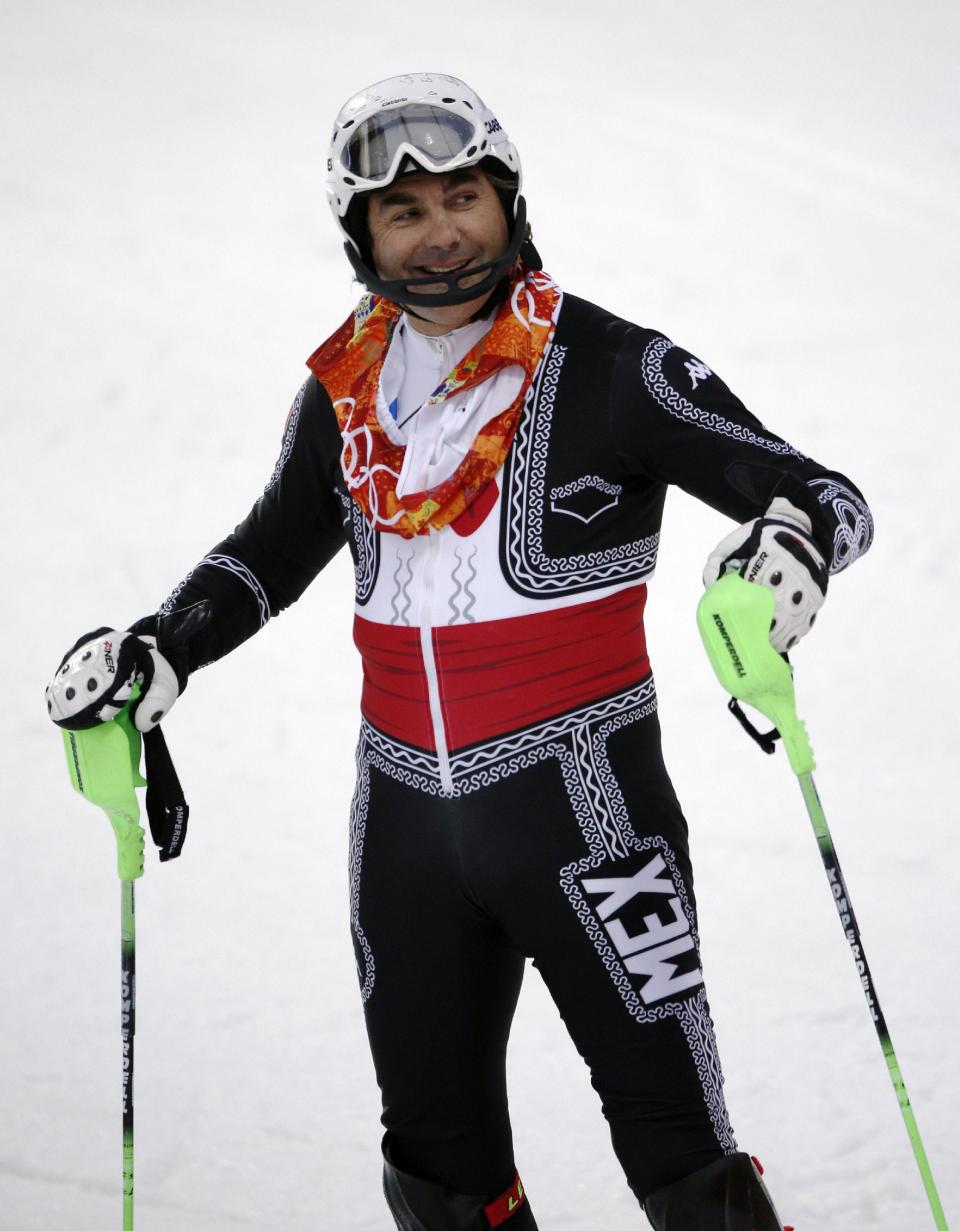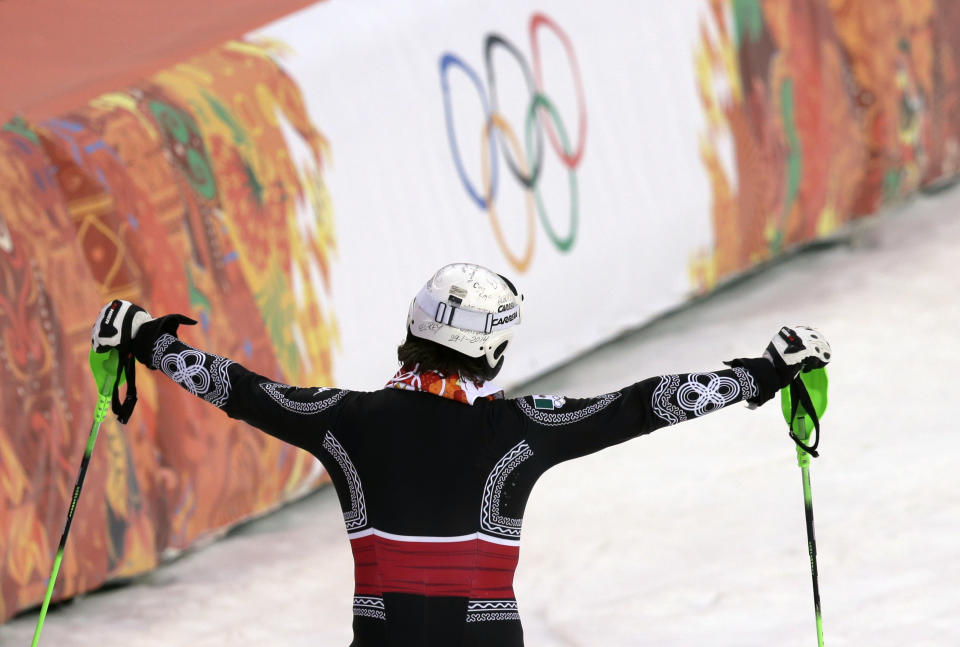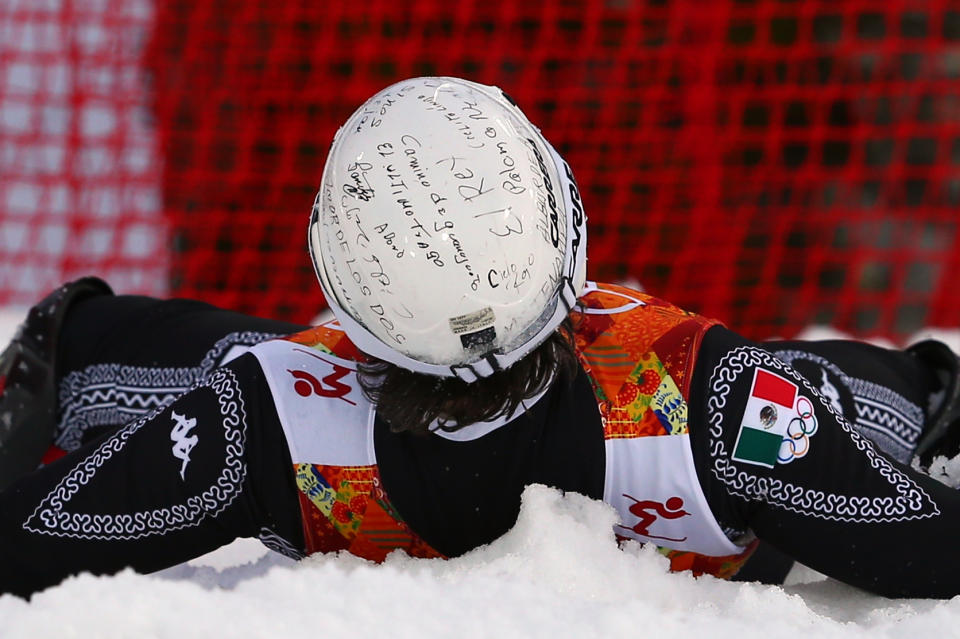Mario Matt of Austria wins Olympic slalom
KRASNAYA POLYANA, Russia (AP) — An Austrian was the heavy favorite to capture the men's slalom on Saturday. Just not this Austrian.
Mario Matt was a surprise winner as he became the oldest Alpine champion in Olympic history, edging pre-race favorite and teammate Marcel Hirscher.
Leading after the first run, Matt glided through the slushy course in a combined time of 1 minute, 41.84 seconds in the last Alpine event of the Sochi Olympics. Hirscher finished 0.28 seconds behind for silver and teenager Henrik Kristoffersen of Norway captured bronze, 0.83 behind.
Matt, who turns 35 in April, surpasses now-retired Norwegian great Kjetil Andre Aamodt as the oldest Alpine skier to win gold.
"Most impressive day in my career," Matt said. "It started 14 years ago, and I'm totally happy that I made it to the finish."
But he wasn't the only one on the podium accomplishing a little bit of history. The 19-year-old Kristoffersen became the youngest male Alpine skier to medal.
"This is unbelievable," Kristoffersen said.
On this night, crossing the finish line was no easy task. The course set by Ante Kostelic of Croatia was so tough and tricky that five of the last eight racers didn't finish, including American Ted Ligety, who was sixth after his opening run.
"The snow is just really bad and Ante set a really difficult, typical Ante course set, which is borderline unsportsmanlike to set those kinds of course on these kinds of hills," said Ligety, who captured gold in the giant slalom three days ago. "But that's how it goes. Everybody had to ski it. Not all the best guys had a chance to make it down, unfortunately."
Not pleased with his first pass through the course, Kristoffersen knew he might have a chance after seeing the setup for the second.
"So thank you, Ante Kostelic, for that one," Kristoffersen said.
The 1-2 finish by Matt and Hirscher helped Austria win the Alpine medal race with nine, which was four more than the Americans. Austria kicked off the Olympics with Matthias Mayer taking gold in the downhill and Matt brought the show to an end in fine fashion.
This was in stark contrast to the performance by the Austrians in Vancouver four years ago, when the skiing-rich nation had only four medals — and none by the men.
"It's great for us. We are very happy. It's important also for the men's team," said Hans Pum, the sports director of the Austrian ski federation.
Matt almost looked stunned after crossing the finish line. Once he realized he indeed was the champion, he began to celebrate — crouching low on his skis and slowly rising up, extending his right ski pole high in the air.
This season has been quite a resurgence for Matt. He won his 14th career World Cup slalom race two months ago in Val d'Isere, France — his first win in more than two years.
And now this.
"He's a tremendous competitor, a game-day guy," U.S. men's coach Sasha Rearick said of Matt. "He's a great skier, but he's an extremely strong competitor."
It wouldn't come easy as Hirscher, arguably the best technical skier in the world, turned in a magnificent run just when it looked like his medal chances were all but finished.
Behind by 1.28 seconds after a lackluster opening run, Hirscher aggressively skied the final run, resembling the guy who won the overall title in the discipline. He made up exactly a second on Matt, but it wasn't enough.
Before Saturday evening, the Olympics hadn't been too friendly to Hirscher. He finished a disappointing fourth in the giant slalom last Wednesday. In Vancouver, Hirscher was fourth in the giant slalom and fifth in the slalom.
His chances looked slim in this race, even posting between runs on his Twitter account: "For me it's going to be difficult today ..."
That's why he wouldn't label his runner-up finish disappointing, even if he was the heavy favorite.
"To get the silver medal in these conditions is almost impossible," Hirscher said, "yet I did it."
